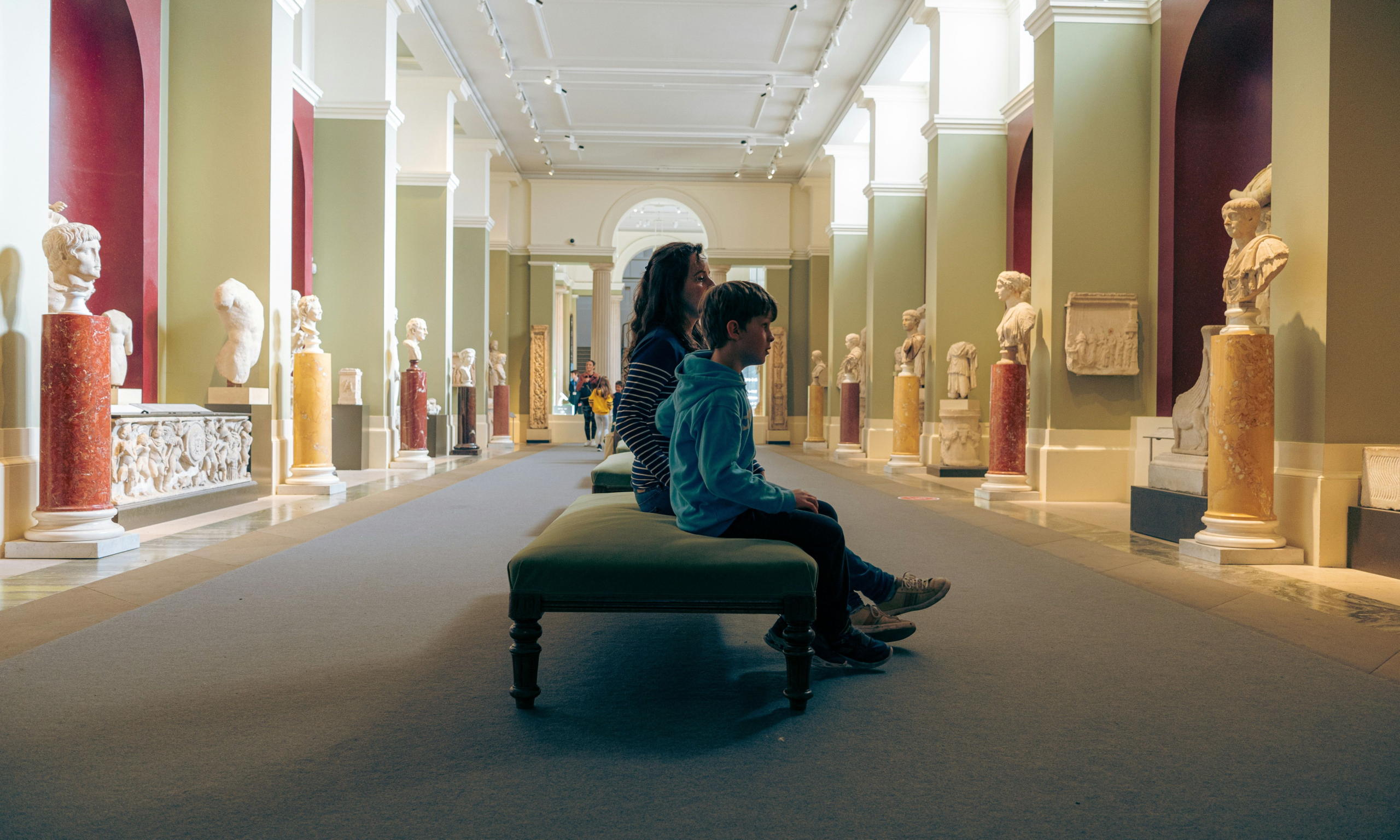The Conservative government has been accused of “cultural vandalism" by the Green Party © Benjamin Elliott
UK Prime Minister Rishi Sunak and Labour leader Keir Starmer may have clashed in their first TV election debate this week but the issue of the arts was omitted from the discussion. So The Art Newspaper contacted the main political parties to find out their plans.
We received responses from Labour, the Conservatives, the Liberal Democrats and the Green Party. Only Reform UK failed to respond to our request. We even spoke with the Animal Welfare Party, who has counted the artist Tracey Emin among their supporters in previous elections.
A spokesperson for the Conservatives defended the government’s record, despite being accused of cutting arts funding. They said: “We are backing the creative industries with £1 billion of tax reliefs and are committed to making sure that apprenticeships work well for the sector, delivering for our creative industries so that they can continue to lead the world and create a brighter future.
“We are also investing £446m over the next three years into cultural organisations, giving artists new opportunities and making sure that everyone can access arts and culture in their community.”
However, other parties criticised the government for underfunding the arts and pledged to reverse this. Jack Lenox, the Green Party’s National Culture Spokesperson and parliamentary candidate for Lancaster, said: “The cultural vandalism of the past 14 years has done terrible damage to our cultural sector and those it employs.” He went into detail regarding the lack of arts funding at council level: “We're committed to restoring funding to at least pre-2010 levels at both national and local levels,” he explained. “Cuts to council budgets have almost completely eradicated localised funding—a scandal that has gone largely unreported, and so properly funding local councils is crucial. We know from research by Arts Development UK—before it had to close due to cuts—that local authorities see returns of up to £4 for every £1 they spend on the arts.”
This was echoed by the Liberal Democrats. Their spokesperson said: “The Conservatives have neglected our arts industries for too long—from slashing funding for the arts at university, to putting up new barriers and bureaucracy for British musicians and actors who want to perform elsewhere in Europe.”
The issue of closer ties with Europe was also brought up by Labour who promise to seek arrangements with the EU to facilitate easier touring and cultural exchange. Labour’s Thangam Debbonaire, the Shadow Secretary of State for Culture, Media and Sport said her party would treat the brief with more respect. She said they would “end the ministerial merry-go-round with the role of Culture Secretary, which is a symbol of the dismissive, negligent and insulting way in which the government has treated the people who work in these important industries. Over the past 14 years they’ve racked up the equivalent of a cricket score of Culture Secretaries. Labour will champion the arts, culture and creative industries so they can contribute to the growth, jobs and joy we all benefit from.”
Although lacking in concrete numbers, Labour’s plans to boost funding included “collaborating with the sector, the Creative Industries Council, Arts Councils and other public funders, investors and donors to create a private finance model or models to attract more funding from different sources into arts organisations and put them on a more sustainable footing.”
They also promise to ensure “a freelance career in the arts remains a viable prospect through their New Deal for Working People”, which they say would provide flexibility to creative commissioners and creators. This workplace flexibility was also echoed by the Green Party, which advocates for a Universal Basic Income, to “give people the freedom and security to reach their artistic potential.”
The floating voter Tracey Emin told the Guardian she had voted Tory twice, both times for David Cameron in the past. Although she was opting for Labour this time she said she had voted regularly for the Animal Welfare Party.
Vanessa Hudson, the leader of the Animal Welfare Party, said the cuts to arts funding pose a threat to the cultural response to some of the world’s biggest crises. She says: “Animal Welfare Party believes wholeheartedly in the potential of the arts to communicate a wide range of social justice issues. This can include transforming the culture around animals. The creative use of arts can bring to light what is hidden in engaging, dynamic ways. It can allow people a better understanding of the challenges faced by UK wildlife as the climate and ecological emergencies take hold, as well as those endured by other animals around the country, whether in farming, entertainment, experimentation and beyond.”

